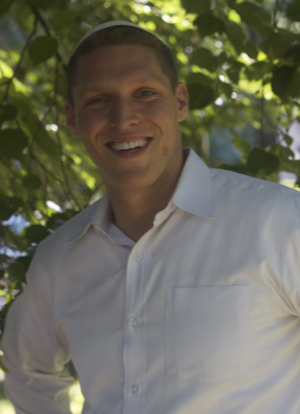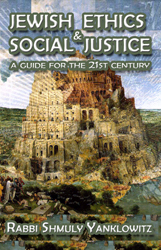 Our basic premise as activists is human responsibility. We, not someone else, must step up to create change in the world. To turn to others before ourselves is for cynics and critics not change makers. What about prayer? Is it a cop out? I would suggest that prayer offers us three vital opportunities as activists: 1) Reflection and Self Awareness, 2) Reminder of Values and Recharge, and 3) Humility.
Our basic premise as activists is human responsibility. We, not someone else, must step up to create change in the world. To turn to others before ourselves is for cynics and critics not change makers. What about prayer? Is it a cop out? I would suggest that prayer offers us three vital opportunities as activists: 1) Reflection and Self Awareness, 2) Reminder of Values and Recharge, and 3) Humility.
First, we know that activism can make us hot-headed, and impulses can run high. Prayer is the opportunity to check back in with our essence. Rav Kook, first Ashkenazi Chief Rabbi of Israel, explains: “Prayer is only correct when it arises from the idea that the soul is always praying. When many days or years have passed without serious prayer, toxic stones gather around one’s heart, and one feels, because of them, a certain heaviness of spirit. When one forgets the essence of one’s own soul, when one distracts his mind from attending to the innermost content of his own personal life, everything becomes confused and uncertain. The primary role of change, which at once sheds light on the darkened zone, is for the person to return to himself, to the root of his soul” (Olat HaRa’aya, 2). Prayer reminds us that we must slow down, reflect upon our actions, and become very aware of our feelings and our spiritual integrity.
Second, prayer is a time to recharge, pausing to remind ourselves of core values and reaffirming our highest moral and spiritual commitments. Activists are consumed with opposing some of the most immoral forces on the planet. Prayer is a return to idealism, to hope, and to faith that justice will prevail. The 20th century philosopher Pierre Teilhard de Chardin explained: “We are not physical creatures having a spiritual experience. We are spiritual creatures having a physical experience.” By connecting with our spiritual values, we can return to the material world with a broader, fresher, and more idealistic spirit.
Third, in prayer we humble ourselves. We remember that we do not control the world. We do not naively believe that we will succeed in all of our endeavors or that G‑d will merely fulfill our requests. Rather, we seek a humble connection above, without expectations, as we affirm that the job of G‑d is taken. Rabbi Joseph B. Soloveitchik explained that G‑d listens, but prayer is more about  relationship and connection than wish fulfillment. “We have the assurance that God is indeed a shomeiah tefillah, One who hears our prayers, but not necessarily that He is a mekabel tefillah, One who accepts our prayers, and accedes to our specific requests. It is our persistent hope that our requests will be fulfilled, but it is not our primary motivation for prayer. In praying, we do not seek a response to a particular request as much as we desire a fellowship with God” (Reflections of the Rav, volume 1, p. 78). When we seek a relationship with the Divine, we not only humble ourselves but fill ourselves with wonder. Biologist J.B.S. Haldane said it well: “The world will not perish for want of wonders but for want of wonder.” Prayer reminds us of how small we are amongst the cosmos.
relationship and connection than wish fulfillment. “We have the assurance that God is indeed a shomeiah tefillah, One who hears our prayers, but not necessarily that He is a mekabel tefillah, One who accepts our prayers, and accedes to our specific requests. It is our persistent hope that our requests will be fulfilled, but it is not our primary motivation for prayer. In praying, we do not seek a response to a particular request as much as we desire a fellowship with God” (Reflections of the Rav, volume 1, p. 78). When we seek a relationship with the Divine, we not only humble ourselves but fill ourselves with wonder. Biologist J.B.S. Haldane said it well: “The world will not perish for want of wonders but for want of wonder.” Prayer reminds us of how small we are amongst the cosmos.
To be an activist is about taking responsibility for the injustices and oppressions in society. A spiritual life that embraces prayer is not at odds with this goal. Rather, prayer may be one of our most important tools to build community, spiritually recharge, and enhance our collective efforts to create a more just world.
You can now purchase Rav Shmuly’s book Jewish Ethics & Social Justice: A Guide for the 21st Century.
Rabbi Shmuly Yanklowitz is an author and activist. He is the President and Dean of the Valley Beit Midrash collaborative adult education program, Founder & President of Uri L’Tzedek, the Orthodox Social Justice Movement, and Founder & CEO of The Shamayim V’Aretz Institute. His work has published in the New York Times, the Wall Street Journal, The Atlantic and the Huffington Post, as well as many secular and religious publications. Rabbi Shumly is the author of several books on Jewish spirituality, social justice and ethics. He lives in Phoenix, Arizona.

